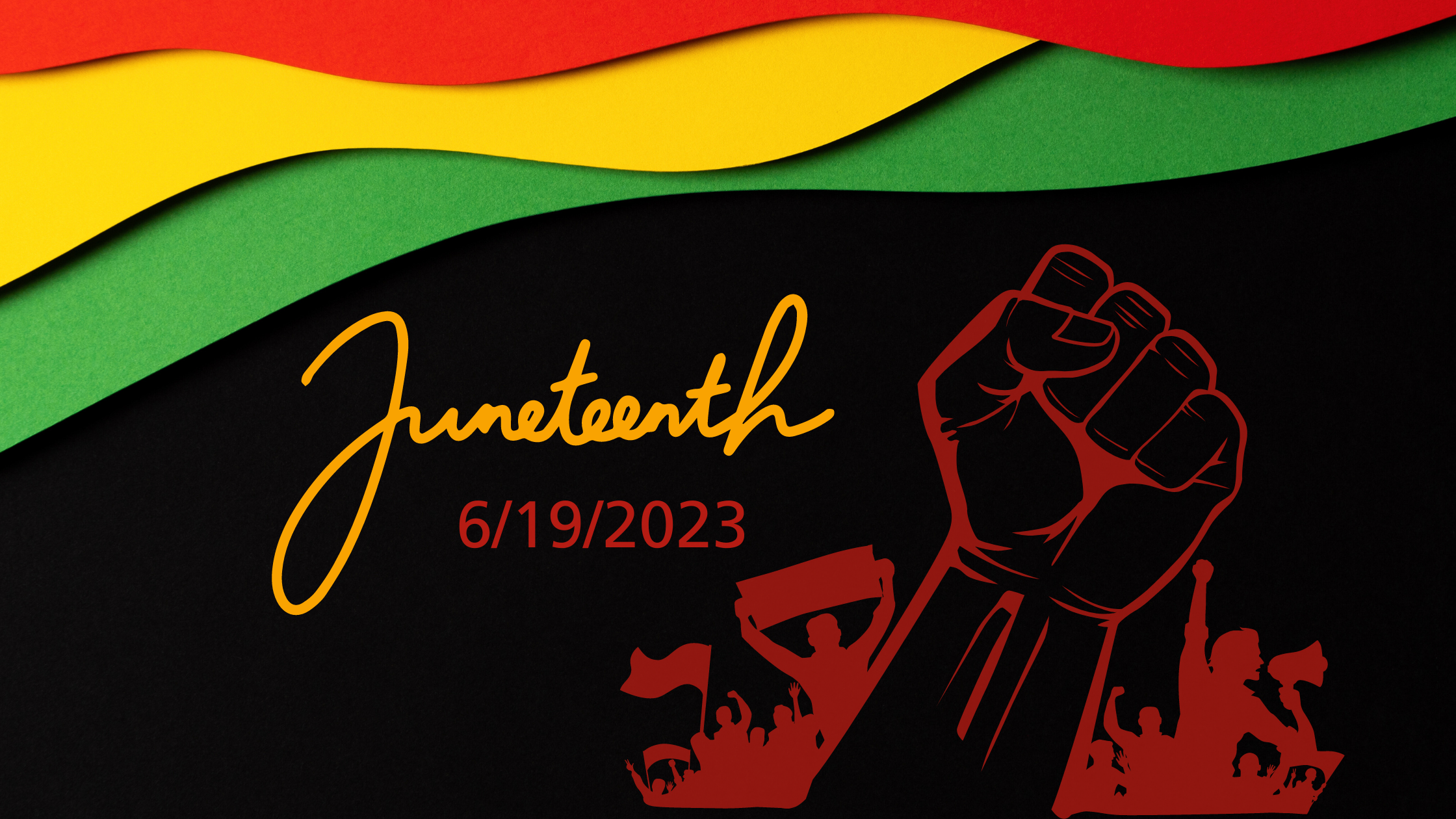Freedom’s Eve: January 1, 1863
On that night, enslaved and free African Americans gathered in churches and private homes all across the country awaiting news that the Emancipation Proclamation had taken effect. At the stroke of midnight, prayers were answered as all enslaved people in Confederate States were declared legally free.
Freedom finally came on June 19, 1865
when some 2,000 Union troops arrived in Galveston Bay, Texas. The army announced that the more than 250,000 enslaved black people in the state, were free by executive decree. This day came to be known as “Juneteenth,” by the newly freed people in Texas.
On June 17, 2021
President Biden signed legislation in 2021 that made Juneteenth, which falls on June 19, a federal holiday. The law went into effect immediately, and the first federal Juneteenth holiday was celebrated the next day. (The holiday was observed on June 18, as June 19 fell on a Saturday.)
Juneteenth
Juneteenth, also known as Freedom Day or Jubilee Day, is a federal holiday that commemorates the announcement of the abolition of slavery in Texas on June 19, 1865. Although the Emancipation Proclamation had been signed by President Abraham Lincoln on January 1, 1863, it took more than two years for the news to reach Texas, which was still under Confederate control during the Civil War.
On June 19, 1865, Union General Gordon Granger arrived in Galveston, Texas, with roughly 2,000 federal troops to take control of the state and enforce the emancipation of its enslaved population. General Granger read General Order No. 3, which declared that “all slaves are free” and that “this involves an absolute equality of personal rights and rights of property between former masters and slaves.”
The announcement sparked celebrations among African Americans in Texas and beyond, who had been waiting for the news of their emancipation for years. They held prayer services, feasts, and other festivities to mark the occasion, and the annual tradition of Juneteenth celebrations was born.
Over time, Juneteenth spread to other states and became a symbol of African American freedom and achievement. It was also a time to reflect on the struggles and sacrifices of enslaved people and their descendants, and to honor their contributions to the nation’s history and culture.
During the Civil Rights Movement of the 1950s and 1960s, Juneteenth gained renewed attention as a day to rally for equal rights and freedom for all. In 1980, Texas became the first state to make Juneteenth an official holiday, and today it is recognized as a state holiday or special day of observance in most states.
Juneteenth has also become a time to educate people about the history and legacy of slavery and racism in America, and to work towards a more just and equitable society. It is a reminder that freedom is a hard-won and ongoing struggle, and that we must continue to fight for the rights and dignity of all people.
The push to make Juneteenth a federal holiday gained momentum in 2020 following a wave of protests against systemic racism and police brutality in the wake of George Floyd’s murder. Many companies and organizations began to recognize Juneteenth as a holiday, and several states made it a state holiday. In June 2021, the bill to make Juneteenth a federal holiday passed with overwhelming bipartisan support in both the House of Representatives and the Senate. The recognition of Juneteenth as a federal holiday is an important step towards recognizing the contributions and struggles of African Americans throughout history.














